I have a huge love-hate relationship with awareness days when they’re used as a tactic in digital PR.
There are quite literally thousands of topics that have a day specially dedicated to them ranging from national holidays like Christmas Day, Valentine’s Day and Easter, to more serious ones like International Women’s Day, Dry January and World Mental Health Day.
We also can’t forget the downright ridiculous ones like National Pizza Day, Bubble Bath Day and, my personal favourite, Answer Your Cat’s Questions Day.
Awareness days can be a great way to hook into a topic that you know for a fact some journalists will write about.
They also give you a good excuse to focus on a topic that might not normally be newsworthy, but is super relevant to your client.
BuzzSumo analyzed some major awareness events in their report: 600K Journalists Analyzed: Everything You Need To Know About Journalists & Pitching, and showed you how to find out if they’re worth your time.

While this strategy is incredibly useful for PRs, sometimes brands push campaigns that are entirely focused on niche awareness days.
They’re so narrow in their audience that you wouldn’t know about it without googling the specific term.
Then, the awareness day comes and goes, and you’re left with a complete non-story.
Awareness days are useful, but we also have to be careful with them.
So how do we know which days are the right ones to focus on?
At Heroine, I make sure that we implement a strong strategy for success if we think an awareness day is necessary to boost our campaigns.
Here’s exactly what I do to ensure success.
The problem with building a campaign around an awareness day
First, let’s talk about some of the problems with focusing a campaign around an awareness day.
It still has to be newsworthy
Some of the most common issues I’ve seen are when companies use awareness days to carry the entire campaign.
The story would normally not be newsworthy on its own, but because the awareness day exists, they believe it has some legs to stand on.
Unfortunately, this often means that the main story ends up being weak, and having a weak story in digital PR means you’re not likely to pick up any coverage.
This is one of the main reasons Journalist’s Are Disappointed With Your Link Building Campaigns, according to Nicole Franco from Fractl.
There might not be enough interest
By their very nature, awareness days exist to increase the awareness of something.
Usually that’s an important topic or underserved group of people.
Sometimes it’s a charity that needs an additional push for donations, other times it’s something very banal like pizza or penguins.
We know journalists will cover the awareness day in some respect, as they might have written similar articles in the past…
…but that doesn’t mean that it guarantees coverage, and the more niche the awareness day, the less opportunity there is for it to be picked up in the media.
Ultimately, if you’re creating a story with the intention of piggybacking on an awareness day, you should be extra aware of whether the content you’re promoting is as strong as it could be.
Keep in mind that often the awareness day only exists because whatever it’s bringing awareness to might not be popular in the first place or be given its own merit in the news.
Always ask, are you adding value to the conversation, or just creating more noise in the news cycle?
A great comment on this comes from journalist Rachel Pugh who explained in 2022 that there’s actually not a huge appetite for May the 4th shopping content, no matter what we personally think.
She mentioned that she still gets lots of pitches for it, but the audience isn’t there for her to write a story on.

Awareness days are fabulous and can be done for a good cause.
It’s important to keep in mind that we need to be conscious of the right ones to piggyback on, based on how popular they actually are with audiences and, therefore, journalists.
After all, our primary objective is to get coverage and links.
Using BuzzSumo to identify awareness days journalists are actually writing about
What we need to do first, before we brainstorm blog ideas or do any PR campaign ideation, and especially before we craft an entire campaign around one awareness day, is to find out if there’s an appetite for it.
Thankfully, awareness days are annual, so we can use data from the past couple of years to see how impactful they are on our media and how likely a journalist is to cover them.
BuzzSumo’s Content Analyzer is a great way to find out which awareness days are worth the hassle.
The tool allows us to analyze millions of articles published over the last year, giving us information on:
The most engaging articles on social mediaTotal articlesTotal and average social engagementsTotal and average number of links
For any topic / awareness day.
Follow the below process:
Go to the Content Analyzer tool under the Content tabInput your awareness day (with quotation marks, if you want to search the words one after the other)Hit the “Journalist” filterGo to “View Analysis Report” tab
Voila! Now you have all the information based on how often the awareness day has been covered at your fingertips.
You can even compare the engagement and coverage of different awareness days in this report.
Watch the demo below to see how it’s done.
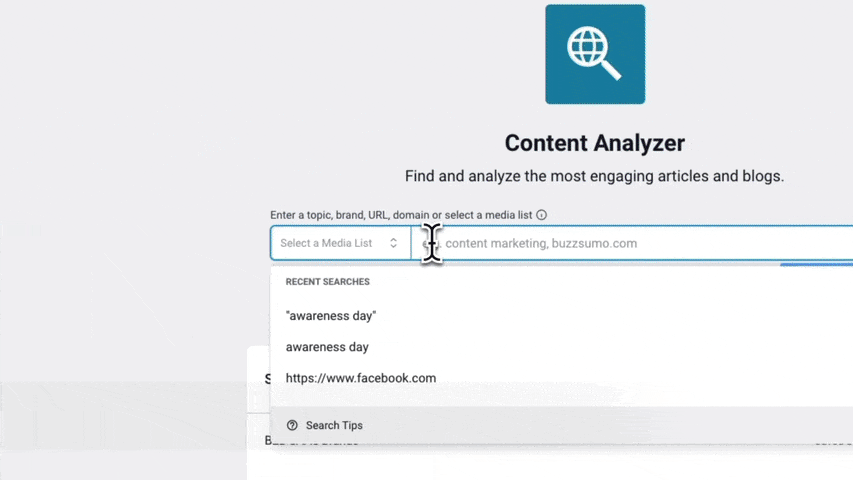
How to find journalist’s favorite awareness days
So which awareness days do we want to focus on?
Here are some examples based on the BuzzSumo method of assessing popularity and what journalists are actually writing about.
Christmas Day has 1,161,363 articles from the past year, with 80,194,399 total engagements on all of those articles.

However, we know Christmas is one of the biggest days of the year and often a safe option for PRs to hook into, so what about some other notable days?
Valentine’s Day tells a similar story (although with much less popularity) with 50,578 articles and 2,397,590 total engagements.

This is a good indicator that Valentine’s is a strong day to build a campaign around, as there’s plenty of appetite for journalists covering Valentine’s Day content, from gift guides to larger content campaigns.
When we start to move away from the more common days, especially national holidays, the opportunity for coverage becomes few and far between.
This is where we need to be careful.
For example: Teacher’s Day. You might think this is an absolutely perfect awareness day to base a campaign around for an education client.

In reality, only 867 articles were written about the day in the past year, meaning you have a much harder chance of finding journalists who will cover the story.
That, and the competition ramps up.
However, if you do your research, you can find some golden nuggets.
Earth Day has 35,267 articles – pretty high for a day people might not think twice about or even know is coming up.

The high engagements also mean people are reacting to this content on social media, which makes sense as the day usually carries a strong environmental message which elicits strong emotions in readers.
Earth Day
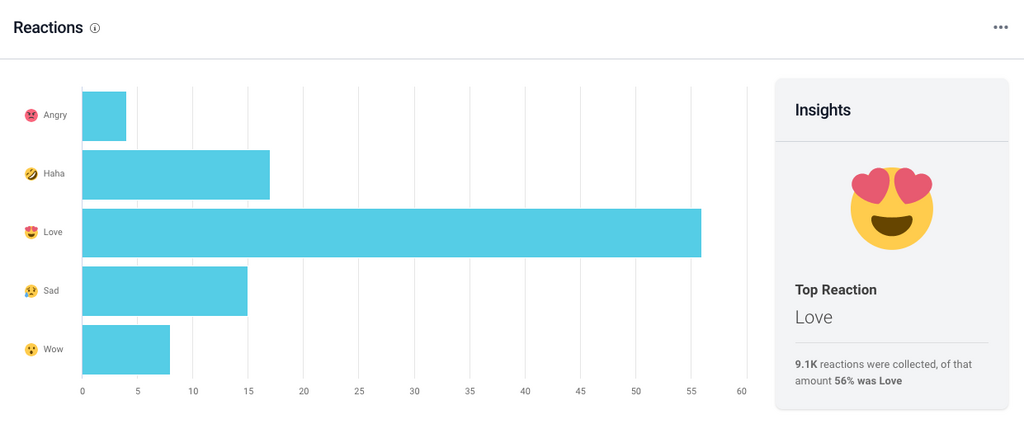
Facebook reactions chart in BuzzSumo’s Content Analysis Tab Report, showing 9.1K reactions for journalist content surrounding Earth Day – 56% of that being a Love reaction
Teacher’s Day

Facebook reactions chart in BuzzSumo’s Content Analysis Tab Report, showing 7.2K reactions for journalist content surrounding Teacher’s Day – 70% of that being a Sad reaction
Keep this in mind when you’re deciding if the awareness day is worth covering.
Are there enough journalists writing about it?
And as a good indicator, do these articles tend to get a lot of engagement?
And as an additional pro tip, some awareness days are more popular in some countries than others, so don’t forget to use the country filter to get a more accurate representation of your audience.
Pitching Thanksgiving content to UK-only journalists will probably not get you very far.
Check how journalists are actually covering the awareness day
Now the next step is to find out how journalists are actually writing about the awareness day you want to target.
We can use BuzzSumo again to dig into the articles that are being written about these topics.
We see with Christmas that a lot of the coverage ranges from hard-hitting news to lighter content like celebrity news, reactive commentary, and weather related content.
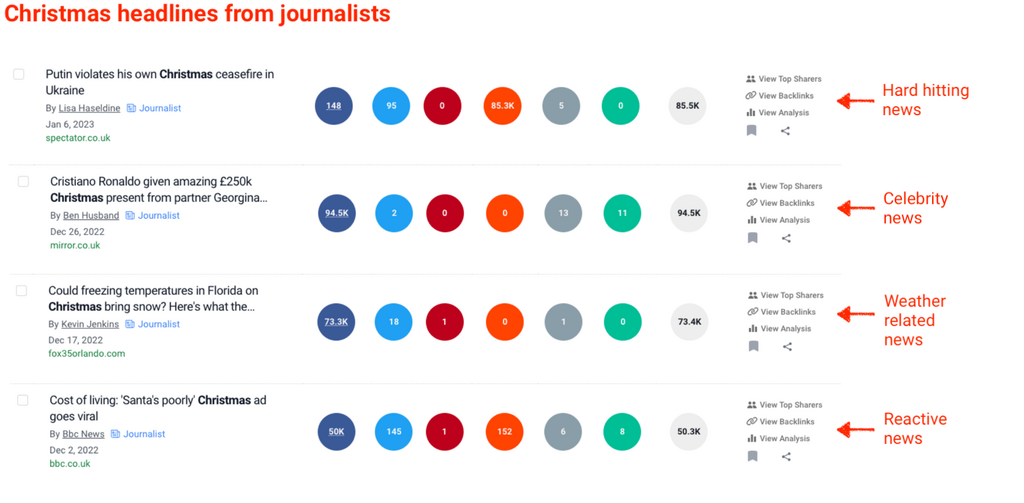
This is the perfect opportunity to build a campaign around as there’s plenty of opportunity to work on different types of formats.
Using Dry January as another example, we can see from the Content Analyzer that there’s data studies on what happens to your body when you quit drinking alcohol, case studies of people who have given up drinking for a month, and shopping content on the best non-alcoholic drinks.
This gives us a much better understanding of the content we should create for this day.

However, if you’re looking at a day like International Women’s Day, you’re likely to see that journalists are covering it in a much more serious way.
There seem to be a lot of data studies and creative stunts around this kind of day to raise awareness for the cause.

So, using the strategy above:
We’ve identified if there are lots of journalists covering the day, giving us lots of opportunities for coverageWe know that, based on the kind of content they’re writing, we can add value to the conversation
Another tactic we can use when seeing how the topic is covered is to save the specific journalists that are covering the kinds of topics that we’ll be exploring with our campaign.
Will we create a report on the cost of Christmas lights in the home over the holiday period?
Find journalists writing articles on the home, personal finance, and money.
You can do this in BuzzSumo’s Media Database…
Find beat-specific journalists
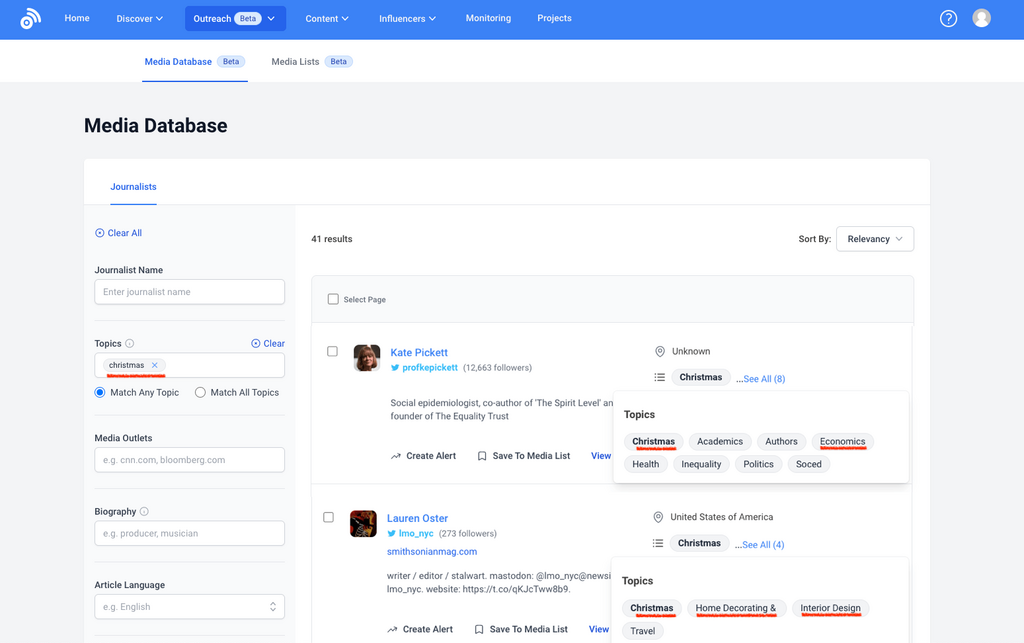
BuzzSumo’s Media Database, showcasing journalists that write about Christmas, finance, and interior design
Save them to a media list

How to save journalists to a Media List
Analyze or export your journalist list

View your pre-saved Media Lists in BuzzSumo
Use BuzzSumo to find out when to pitch your content
Thanks to another neat little section of the Content Analyzer Report tab, we can also see when you should start outreaching these kinds of campaigns based on when the articles start to go live.
To do this, visit the Content Analyzer, input your desired awareness day and navigate to the analysis report.
You’ll find a useful graph under ‘Engagement & content over time’ which breaks down how many articles have launched in the past year, month by month.
Below is an example of articles published in the past year that relate to Christmas Day.

As you can see, articles start to increase in October and November, and they eventually peak massively in December.
Another good reason to get your campaigns ready months in advance for larger holidays.
For Valentine’s Day, we see a similar trend around a different time of year.

Articles for the day start in January and then peak in February, meaning if you were to start outreach for the day you should probably start pre-January, when journalists will be looking for content, which they then have to write up.
When pitching your content around an awareness day, make sure you check when the content is being written about to help you understand what time of the year you need to start pitching.
Often this will be slightly earlier than when the articles actually go live.
Examples of good awareness day campaigns
Below are some examples of when awareness days have been used well, usually as a way to amplify the story rather than to carry it.
Use these as inspiration for your own.
Missing blood type – NHS blood and transplant

To encourage new blood donors, 1,000 organisations removed the A, O, and B from their signage and social media branding to bring attention to the “missing types” of donated blood.
The campaign, launching around World Blood Donor Day, didn’t just raise awareness, but got people to act, with thousands of new donors signing up.
Takeaway flavoured cereal – Deliveroo

Deliveroo launched a limited-edition range of takeaway flavoured cereal which includes Sushi Roll, Margarita Pizza, and Chicken Katsu Curry.
They launched during National Cereal Day which helped push the story further but you can see how it would have been picked up in its own right.
The tattoo duover – Duolingo
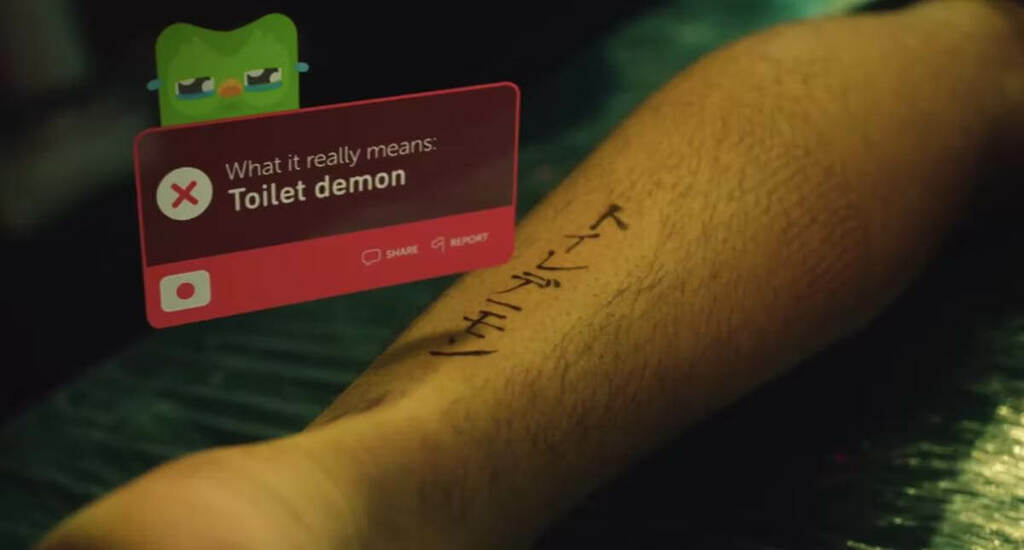
One of my absolute favourite campaigns of the past few years.
It’s common knowledge that people get tattoos in a different language and they don’t always turn out as expected.
For World Tattoo Day, Duolingo offered to pay to remove people’s mistranslated tattoos.
Some final tips on awareness day campaigns
Hopefully, now you know some key strategies and techniques to find out which awareness days you should be focusing on.
It also helps you get buy-in from a client if they’re not sure about the link prospects for a particular day.
Win-win!
Here are some final tips for campaigning around an awareness day:
You still have to have a strong and relevant story. An awareness day should ideally help to promote a story that has legs entirely on its own. If your campaign wouldn’t exist and be interesting without the day to piggyback on, then it’s not a good idea.Don’t base your story 100% around an awareness day. This can be much easier for Christmas content, but if your campaign can only be relevant in terms of the awareness day you’ve given yourself a set timeframe to achieve the results you need.Check BuzzSumo to see if journalists are actually writing about the day. Check if there are enough prospects for you to go to before you start ideating around a specific awareness day.Make sure your company values align with the awareness day you want to focus on. Women’s Day is a great initiative, but if, for example, your gender pay gap is huge, it would be disingenuous to try piggybacking on the day. Remember the Gender Pay Gap Bot on Twitter which outed companies who posted tweets supporting Women’s Day, by sharing details of their own gender pay gap?
Awareness days are a great for newsjacking with relevant stories for your brand, especially now we know how to identify the ones that will reap the most rewards.
But, remember, not all awareness days are made equal.
Sometimes you might truly want to raise awareness for something that doesn’t get spoken about enough in the news.
If your strategy is to create content that will be picked up by numerous journalists, to get your brand in the news, you need to focus on the ones that gain the most attention.
Be smart if an awareness day is the crux of your entire campaign, and what you can realistically expect as a return.
If you found this blog interesting, check out BuzzSumo’s related PR content:
We Analyzed Millions Of Publisher Links. Here’s How To Syndicate Your Content & PR For Free.8 Unconventional Ways To Land Press CoverageApril Fool’s Day: The Power Of Funny Marketing & PR CampaignsHow To Write And Distribute Press Releases
Iona Townsley is the founder of Heroine, a search-first PR consultancy. She’s spoken at many industry conferences and webinars including BrightonSEO and has worked on international clients including Club Med, ZenBusiness, Surfshark, House of Fraser and more. She also writes The Grapevine, a content marketing newsletter that has amassed a strong readership of PRs, marketers and advertising professionals.
Connect with Iona:
Twitter LinkedIn Website
>>> Read full article>>>
Copyright for syndicated content belongs to the linked Source : Buzzsumo – https://buzzsumo.com/blog/how-to-build-pr-awareness-days/










